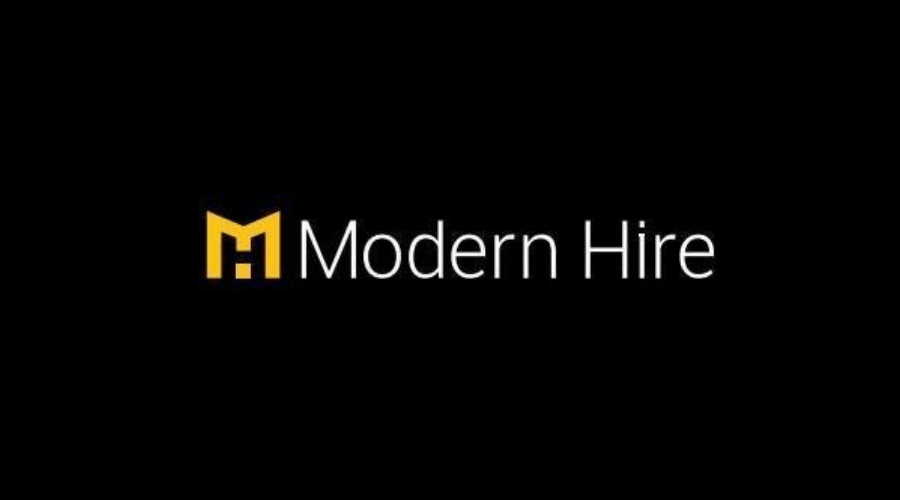DELAFIELD, WIS. AND CLEVELAND, OHIO (PRWEB) DECEMBER 12, 2019
Modern Hire, the all-in-one enterprise hiring platform that enables organizations to continuously improve hiring experiences and outcomes with trusted science and technology, today released a statement regarding the ethical development and adoption of AI’s use in hiring. The company’s approach and statement reflect Modern Hire’s candidate-first, job-relevant approach to the use of the technology across the talent acquisition ecosystem.
AI is enormously powerful and fundamentally transformative in all aspects of the enterprise – especially hiring. But in order to be used most effectively and ethically, organizations must approach AI adoption with a candidate-first mentality. Modern Hire has always approached all aspects of the hiring process with rigorous scientific and ethical principles for the nearly 20 years of its operation, and will continue to do so with the development and implementation of ethical AI solutions in the field. Modern Hire’s ethical AI statement recognizes the impact AI can have on predicting fit for hire, candidate experience, privacy, and legal compliance and offers a set of guiding principles that technology providers and enterprise organizations should consider.
“In 2019 alone, we will have enabled our enterprise clients to engage over 20 million candidates via assessments and interviews. Our primary goal is to help organizations and job candidates find and evaluate each other for mutual fit,” said Mike Hudy, Chief Science Officer at Modern Hire. “Our approach to developing technology-based solutions is, and has always been, designed to support the individual candidate through rigorously tested scientific tools. We continue to drive innovation in our space by developing and implementing hiring technologies that are job relevant, fair, valid and ultimately trusted.”
The Modern Hire AI Code of Ethics is comprised of the following tenets:
- Modern Hire only evaluates information that candidates knowingly provide to the company. In the assessments and interviews that Modern Hire provides to clients, it does not score facial features, scraped social media profiles or any other information that is not supported by a credible body of research to be related to job performance and free of bias.
- Modern Hire provides candidates with feedback whenever permitted by its clients. When Modern Hire provides candidates with feedback on their interview performance or hiring assessment, the company does so within the parameters set by its clients’ legal teams.
- Modern Hire discloses to candidates how their data is being evaluated and used. In using AI in hiring, the “black box” is extremely problematic. Companies often make decisions based on data that is convenient, but not job relevant. It is vital to ensure that measured candidate characteristics are both job relevant and obvious in how they predict job fit. To support this “glass box” approach, Modern Hire that candidates are aware of what personal data is being used, and how it is being evaluated and scored.
- Modern Hire rigorously develops and tests all scoring methodologies for its AI-powered hiring assessments and interviews. Modern Hire’s team of industrial/organizational psychologists and data scientists work hand-in-hand to ensure all scoring methodologies for its assessments and interviews are job relevant, valid predictors of job performance and related outcomes, and do not cause bias prior to being implemented and used by organizations and their candidates.
“Employment-related decisions are among the most important things that happen in the lives of candidates and employees. As we move further into the era of machine-assisted hiring, vendors and employers alike will be working to establish clear public statements of their approach to the ethical use of intelligent tools,” said John Sumser, Principal Analyst at HRExaminer. “Setting clear expectations about what is and isn’t okay is the heart of the matter. Modern Hire moves the HR technology industry forward by publishing its approach to the question.”
Modern Hire closely adheres with the authoritative guidelines and laws that govern employee selection, including the Uniform Guidelines on Employee Selection Procedures (UGESP) and the Society of Industrial and Organizational Psychology (SIOP) Principles for the Validation and Use of Personnel Selection Procedures, which support scientific research on new and emerging employee selection techniques and technologies, including AI. By strictly complying with these guidelines, Modern Hire ensures that its selection procedures are both scientifically valid and fair.
Additionally and specifically related to AI, Modern Hire supports and adheres to the Organisation for Economic Co-Operation and Development’s (OECD) Principles on AI and the Universal Guidelines for Artificial Intelligence. These guidelines broadly require that AI be used to help humans, be transparent in operation, and be robust and secure.
“Transparency is an essential expectation for organizations looking to adopt and use AI in hiring,” says Eric Sydell, Executive Vice President of Innovation at Modern Hire. “Transparency helps build trust, and for hiring systems to operate optimally, both organizations and candidates must trust the technology used in the hiring process.”
For more information on Modern Hire’s stance on ethical AI, please visit https://learn.modernhire.com/ethical-ai-position.html.

